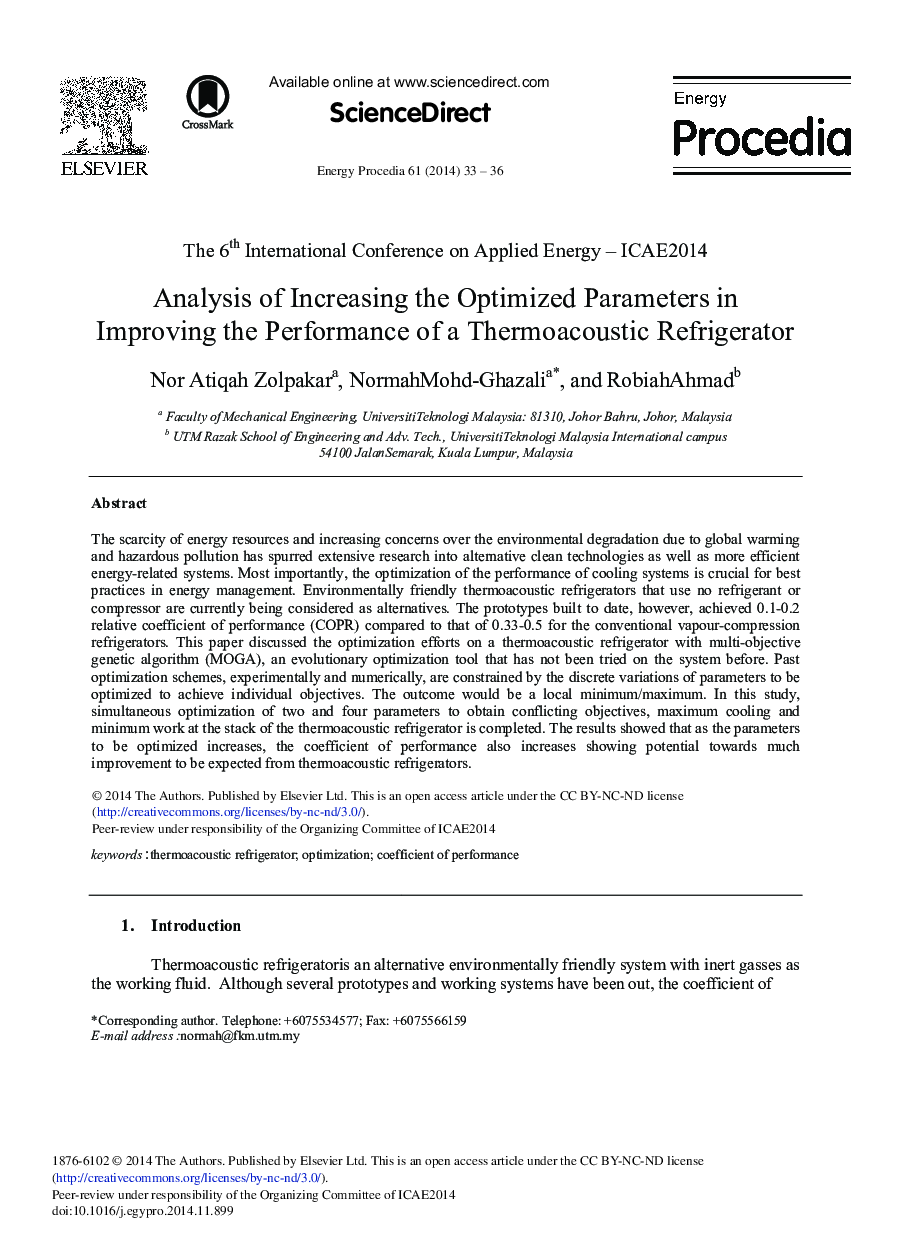| کد مقاله | کد نشریه | سال انتشار | مقاله انگلیسی | نسخه تمام متن |
|---|---|---|---|---|
| 1510438 | 1511174 | 2014 | 4 صفحه PDF | دانلود رایگان |
The scarcity of energy resources and increasing concerns over the environmental degradation due to global warming and hazardous pollution has spurred extensive research into alternative clean technologies as well as more efficient energy-related systems. Most importantly, the optimization of the performance of cooling systems is crucial for best practices in energy management. Environmentally friendly thermoacoustic refrigerators that use no refrigerant or compressor are currently being considered as alternatives. The prototypes built to date, however, achieved 0.1-0.2 relative coefficient of performance (COPR) compared to that of 0.33-0.5 for the conventional vapour-compression refrigerators. This paper discussed the optimization efforts on a thermoacoustic refrigerator with multi-objective genetic algorithm (MOGA), an evolutionary optimization tool that has not been tried on the system before. Past optimization schemes, experimentally and numerically, are constrained by the discrete variations of parameters to be optimized to achieve individual objectives. The outcome would be a local minimum/maximum. In this study, simultaneous optimization of two and four parameters to obtain conflicting objectives, maximum cooling and minimum work at the stack of the thermoacoustic refrigerator is completed. The results showed that as the parameters to be optimized increases, the coefficient of performance also increases showing potential towards much improvement to be expected from thermoacoustic refrigerators.
Journal: Energy Procedia - Volume 61, 2014, Pages 33-36
